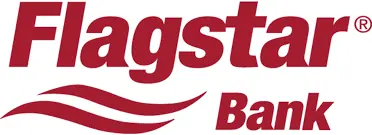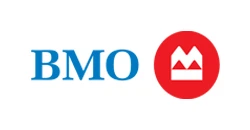2025 FHA Loan Limits in Massachusetts
Homebuyers in Massachusetts who don’t have a lot to spare for a down payment, or who have credit challenges, can consider financing a home purchase with a Federal Housing Administration (FHA) loan. This type of government-backed home loan comes with limits to the amount you can borrow. In Massachusetts, the FHA loan limit for a single-family home ranges from $524,225 to $1,209,750.
We’ll show you how to qualify for this type of mortgage, including the FHA loan limits for each county.
Massachusetts FHA loan limits by county
| County name | One unit | Two units | Three units | Four units | Median sales price |
|---|---|---|---|---|---|
| BARNSTABLE | $799,250 | $1,023,200 | $1,236,800 | $1,537,050 | $695,000 |
| BERKSHIRE | $524,225 | $671,200 | $811,275 | $1,008,300 | $300,000 |
| BRISTOL | $736,000 | $942,200 | $1,138,900 | $1,415,400 | $625,000 |
| DUKES | $1,209,750 | $1,548,975 | $1,872,225 | $2,326,875 | $1,398,000 |
| ESSEX | $914,250 | $1,170,400 | $1,414,750 | $1,758,200 | $795,000 |
| FRANKLIN | $524,225 | $671,200 | $811,275 | $1,008,300 | $410,000 |
| HAMPDEN | $524,225 | $671,200 | $811,275 | $1,008,300 | $410,000 |
| HAMPSHIRE | $524,225 | $671,200 | $811,275 | $1,008,300 | $410,000 |
| MIDDLESEX | $914,250 | $1,170,400 | $1,414,750 | $1,758,200 | $795,000 |
| NANTUCKET | $1,209,750 | $1,548,975 | $1,872,225 | $2,326,875 | $2,525,000 |
| NORFOLK | $914,250 | $1,170,400 | $1,414,750 | $1,758,200 | $795,000 |
| PLYMOUTH | $914,250 | $1,170,400 | $1,414,750 | $1,758,200 | $795,000 |
| SUFFOLK | $914,250 | $1,170,400 | $1,414,750 | $1,758,200 | $795,000 |
| WORCESTER | $524,225 | $671,200 | $811,275 | $1,008,300 | $450,000 |
How are FHA loan limits determined?
FHA loan limits are adjusted annually by the U.S. Department of Housing and Urban Development (HUD). Local home sale data helps determine loan limits, according to a formula outlined in the National Housing Act. The formula uses the national conforming loan limit, set by the Federal Housing Finance Agency (FHFA), as a baseline.
The lowest loan limit is referred to as the “floor,” whereas the “ceiling” is the highest allowable loan amount. The floor is 65% of the FHFA national conforming loan limit — $524,225 in Massachusetts — and the ceiling is 150% of the national conforming loan limit, or $1,209,750. Each county in the state has its own limit that falls within this range.
How to qualify for an FHA loan in Massachusetts
An FHA loan is a great alternative for those who may not be able to qualify for a conventional home loan. Minimum criteria may be more lenient, such as a lower credit score and down payment amount. Still, lenders will need you to meet the following requirements:
- Credit score. FHA loans require a 500 minimum credit score. If you have a credit score of 580 or higher, you’ll qualify for additional benefits, like lower down payment requirements.
- Down payment. For those with a credit score of at least 580, lenders require a 3.5% down payment. Homebuyers must make a down payment of at least 10% if their credit score is between 500 and 579.
- Income limits. You need to prove you have a steady source of income in the previous two consecutive years. Lenders will look at documentation such as W2s, tax returns or sources of self-employment income.
- Debt-to-income (DTI) ratio. Lenders look at the percentage of your income that goes towards debt payments, or your DTI ratio. In most cases, your maximum DTI will be 43%, though some exceptions may be granted.
- Primary residence. The borrower needs to occupy the home as their primary residence for a minimum of one year.
- Mortgage insurance. You need to pay FHA mortgage insurance — 1.75% upfront, then an annual mortgage insurance premium (MIP) based on your loan amount.
- Appraisal. You will need to undergo a home appraisal in order to determine the property’s current market value and to confirm that it meets loan requirements.
Buying a multifamily property with an FHA loan
You can purchase a multifamily home — properties with two to four units — with as little as 3.5% down through the FHA program. Many choose this route as a relatively low-barrier way to pursue house hacking.
Multifamily home loan requirements are similar to those for single-family homes:
- The primary owner needs to occupy at least one unit.
- The buyer must meet minimum DTI requirements, though the lender may take potential rental income into consideration.
- You must have a 580 credit score or higher.
- You must have enough mortgage reserves on hand if you intend to rent out the additional units.
You will also need to meet the FHA loan limits in Massachusetts:
| Number of units | Low-cost FHA loan limit |
|---|---|
| Two | $671,200 |
| Three | $811,275 |
| Four | $1,008,300 |
FHA lenders in Massachusetts
| Lender | LendingTree rating | Minimum FHA credit score | |
|---|---|---|---|
 |  Read our review | 580 | |
 |  Read our review | 580 | |
 |  Read our review | 580 | |
 |  Read our review | 620 | |
 |  Read our review | 580 |
Compare FHA Loans for Free

